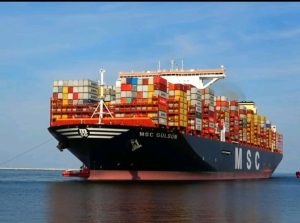Ahead of CVFF Disbursement, Indigenous Shipowners Consider Strategic Mergers for Survival
. . . Expresses concern over shrouded guidelines


Ahead of the anticipated disbursement of the Cabotage Vessel Financing Fund (CVFF), indigenous shipowners have raised concerns over the Nigerian Maritime Administration and Safety Agency’s (NIMASA) failure to release the fund’s operational guidelines.
Speaking to Journalists ahead of a scheduled stakeholders’ meeting in Lagos, the President of the Nigerian Indigenous Shipowners Association (NISA), Otunba Sola Adewumi, emphasized that such guidelines should have been shared with local maritime operators well in advance to ensure transparency and preparedness.
Adewumi also said that the agency has had a number of engagements with shipowners before now but the issue of the guidelines regarding the Fund was never raised.
He explained that merger talks are ongoing adding that whoever can access the Fund alone can do so considering what the 15 percent equity Funding may amount to.
Adewumi said, “As for the mergers, there will be mergers, individuals that have the capacity can go ahead and apply alone, that is the position of our association.
“The most important thing is the guidelines which I believe NIMASA wants to probably discuss with stakeholders at the meeting coming up in the next few days.
“NIMASA has said that it is not a lending agent and that is the essence of having the Primary Lending Institutions, PLIs and if we are to go by the former status quo, it is the Banks that will assess the prospective borrower and confirm his or her ability to pay back and once the ability to pay back is confirmed then they will recommend to NIMASA and then NIMASA will approve the disbursements of the
money.”
Similarly, Engr Akin Olaniyan, President for the Centre for Marine Surveyors in Nigeria, said that the policy is good but the implementation is always the issue.
He explained that NIMASA should not have been part of the process suggesting that a Maritime Bank be established where the PLIs will apply for the Fund and disburse to individual applicant.
“Good policy, good initiative but when it comes to implementation, it always fall flat on his face and this has always been a recurring decimal.
“It is easy to come to a conclusion, the policy makers do not think through things before they come to conclusions and at such, everything falls flat on its face and I just hope this one will not because inevitably everybody will benefit.
“That way the PLIs will be held responsible for any failure should there be a default.”
Recall that NIMASA has been actively working to ensure the disbursement of the Fund (a $700 million fund) designed to support indigenous shipping companies in Nigeria. NIMASA has faced challenges in accessing and disbursing these funds and has been under scrutiny regarding their management.
The CVFF is meant to provide structured financing for Nigerian shipping companies to acquire vessels, but for many years, it remained largely inaccessible. Recent efforts include expanding the number of Primary Lending Institutions (PLIs) to 12 and collaborating with banks to manage the fund responsibly.
The CVFF was initially intended to provide crucial funding for Nigerian shipowners to acquire vessels, but for over two decades, it remained largely inaccessible.












2ep15n